BEHIND THE HEADLINES
RSPB Bird crime report
Persecution and poisoning of birds of prey remains high, according to the 2021 RSPB Bird Crime report – which lays most of the blame on the shooting industry. Mark Rowe reports
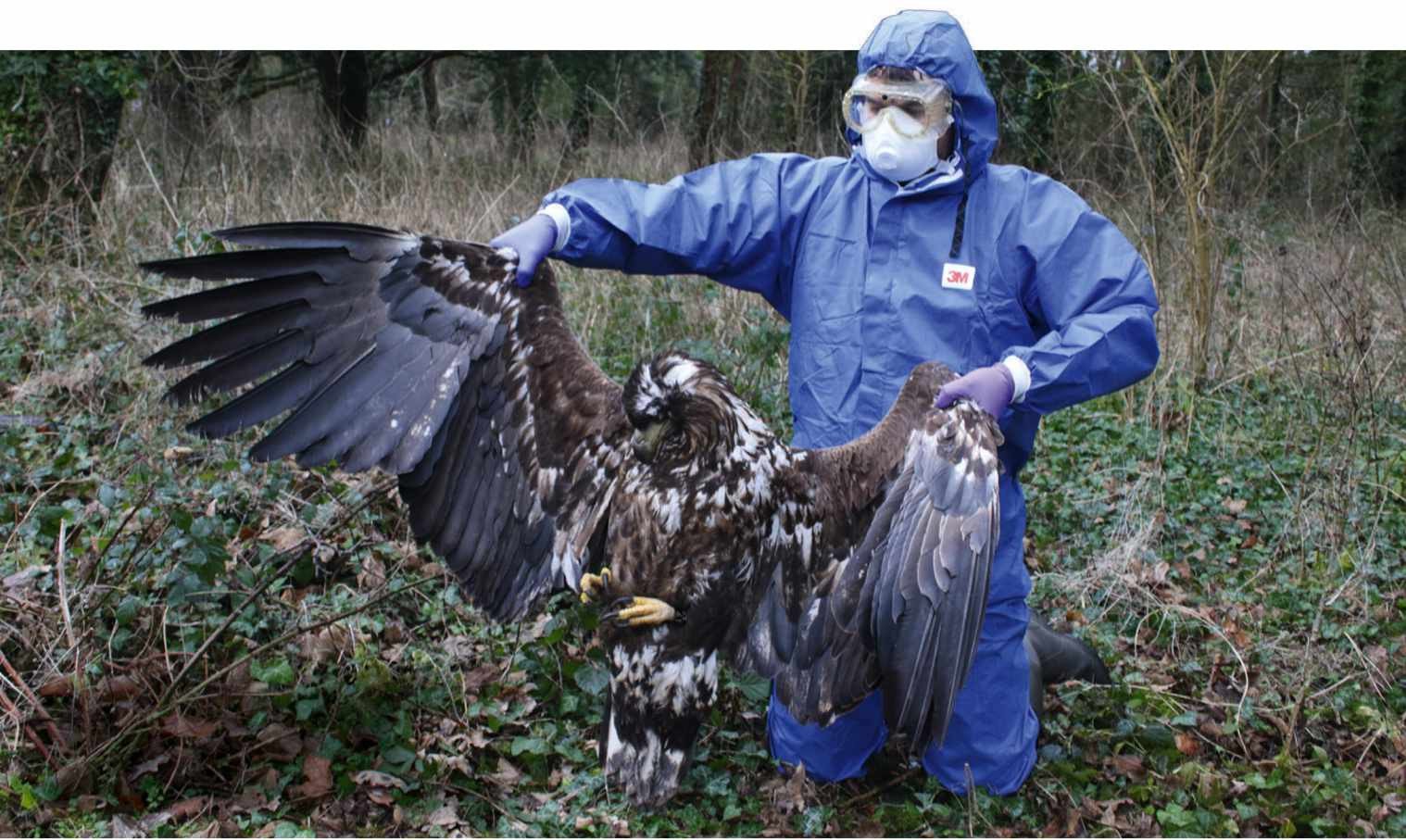
HOW MANY RAPTORS WERE ILLEGALLY KILLED IN 2021?
The RSPB has documented 108 confirmed incidents, expected to rise as data comes in, and most involve the shooting, trapping and poisoning of protected birds of prey. The number is superseded only by 2020’s unprecedented surge of 146 incidents, which was partly attributed to surveillance becoming harder during Covid-19 lockdowns. The prepandemic figures were 64 in 2015, 87 in 2018, and 85 in 2019. England alone saw 80 incidents in 2021: the second-highest figure on record.
WHICH SPECIES HAVE BEEN TARGETED?
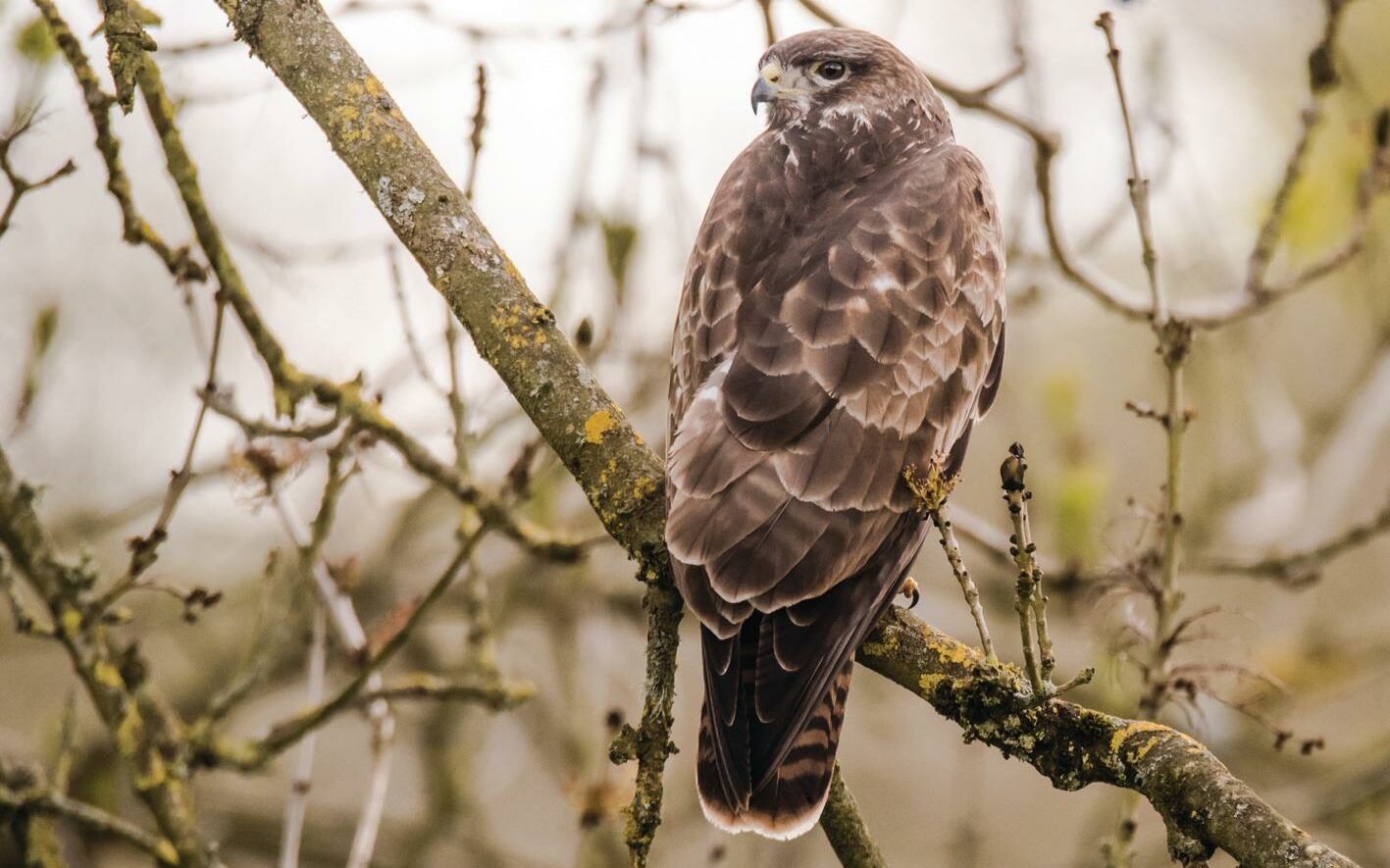
50 buzzards
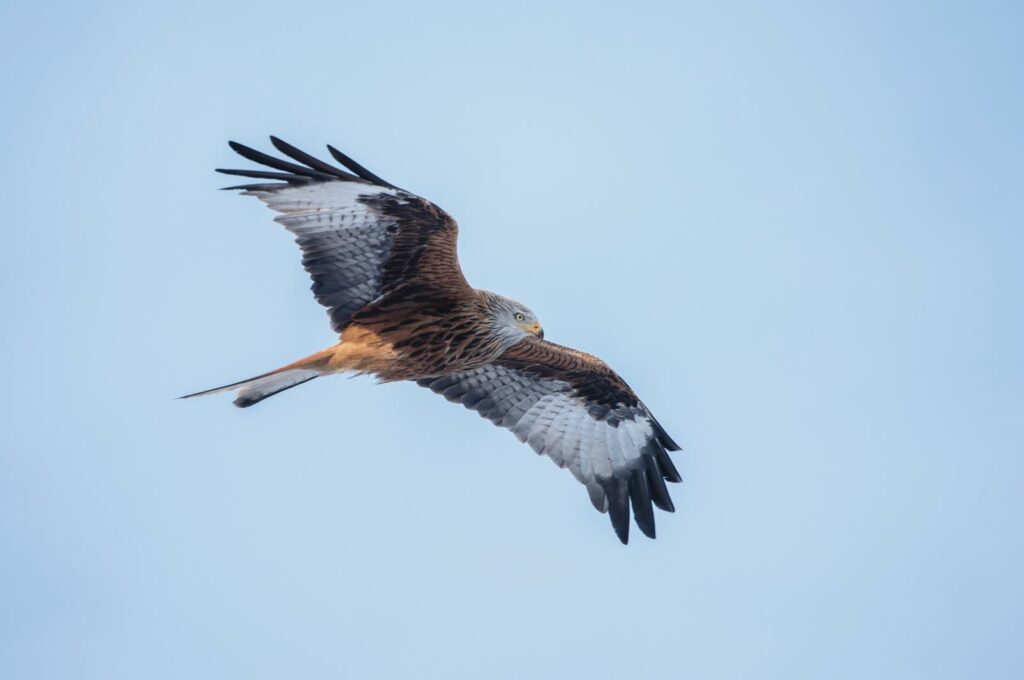
16 red kites
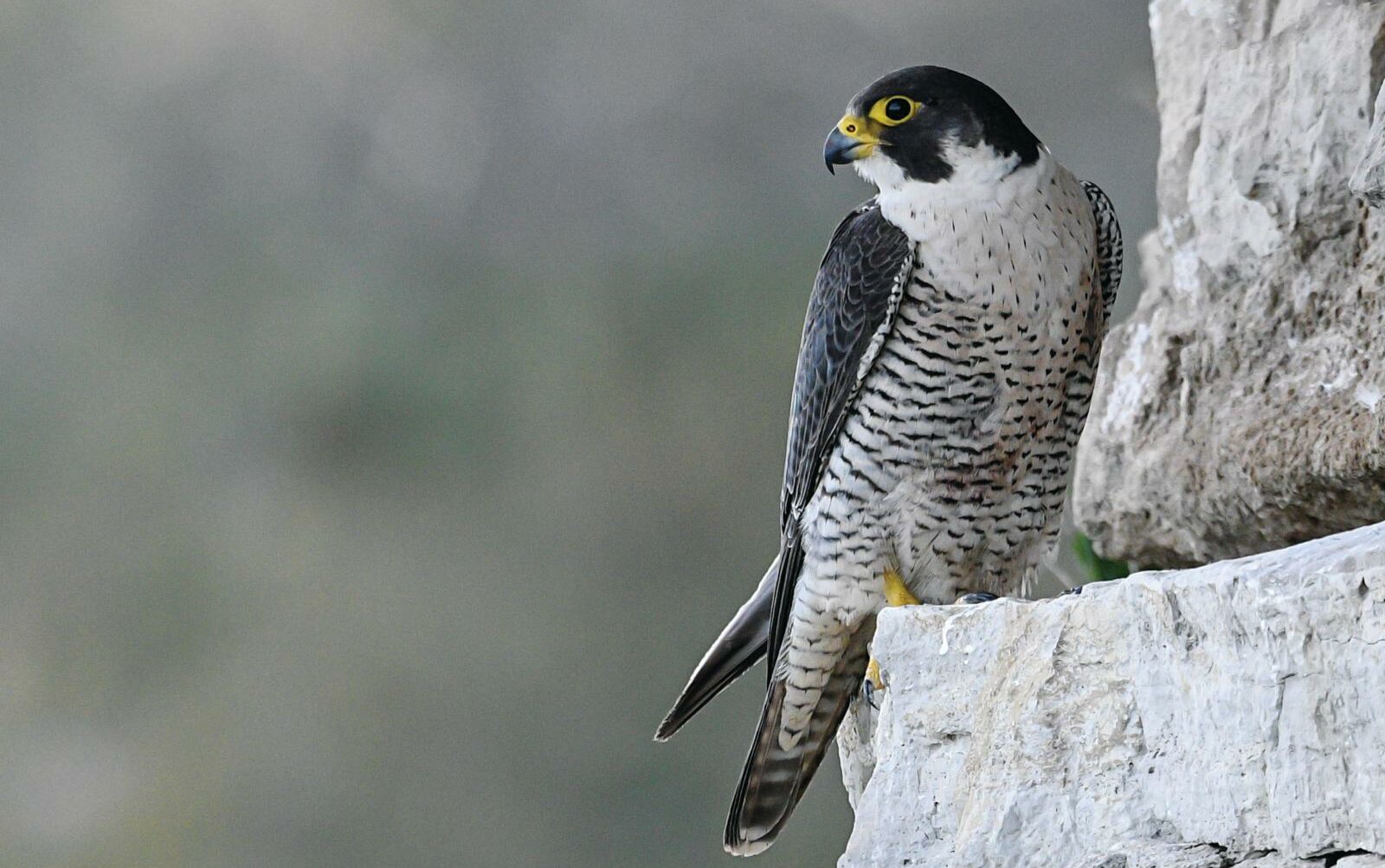
7 peregrines
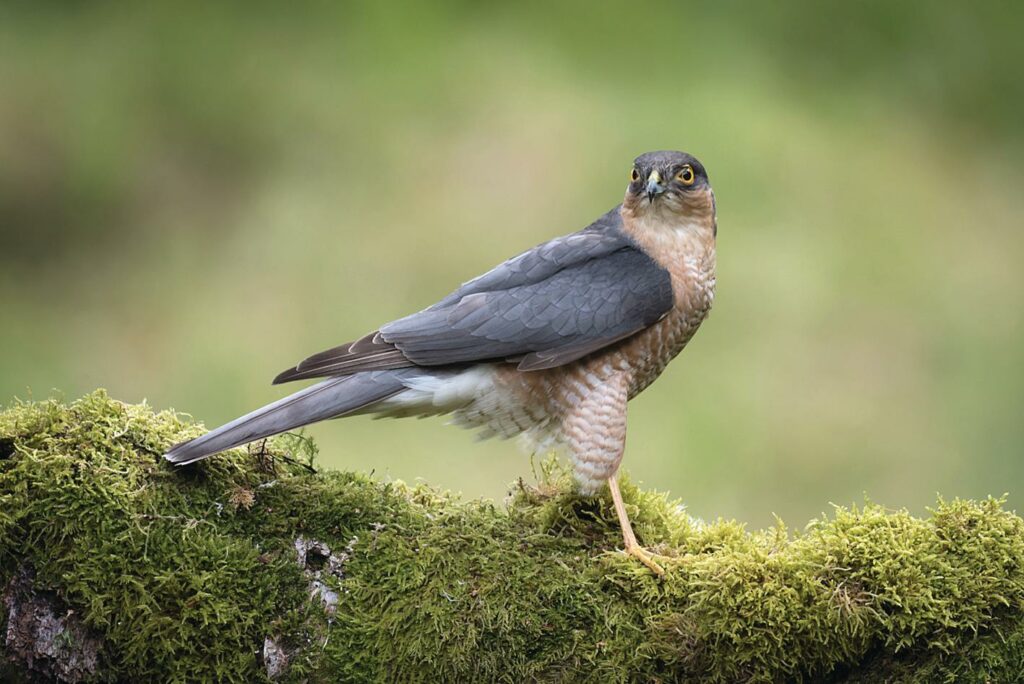
3 goshawks
Deaths include 50 buzzards, 16 red kites, seven peregrines and three goshawks. Rare hen harriers, golden eagles and white-tailed eagles continue to be affected. In Scotland, a golden eagle was found poisoned in the Cairngorms National Park; 68 golden eagles have been illegally killed in Scotland since 1981. “The figures are a fraction of the true number,” says Mark Thomas, head of RSPB investigations. “When tagged birds are targeted they simply stop moving or the tag stops working. But tagged birds are a fraction of the wider raptor population. Many, many more untagged birds are illegally killed.”
In focus: the hen harrier
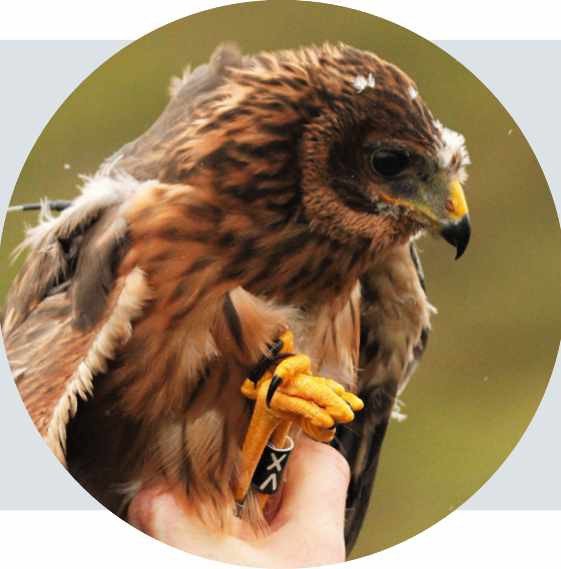
Persecution continues to affect the recovery of hen harriers, according to the RSPB report: “Reports for over two decades have identified persecution as the main factor suppressing the UK hen harrier population.” GPS satellite tagging continues to reveal suspicious disappearances of young hen harriers, including Asta, whose government-funded tag was later found attached to a dead crow. Her body was never recovered. The RSPB says the circumstances were “highly suspicious”. The Moorland Association’s Amanda Anderson says: “The breeding success of hen harriers in the uplands – the best for generations – is a real cause for celebration. Land managed for grouse is a haven for birds of prey.”
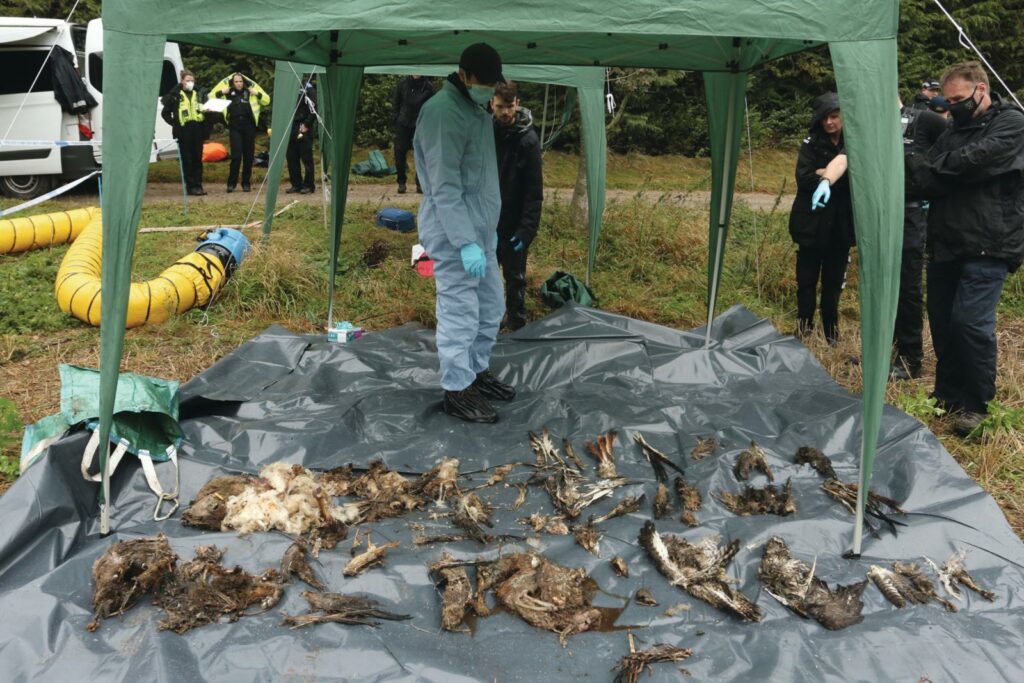
WHO IS TO BLAME?
According to the RSPB, 71% of incidents relate to game-bird shooting. “Birds of prey are persecuted because they are perceived to be a threat to the stocks of pheasants, partridges and red grouse,” says the report.
The two worst counties based on 2021 data – Norfolk (13 incidents) and Dorset (12 incidents) – are lowland areas, dominated by pheasant and partridge shooting, followed by North Yorkshire (10 incidents), which includes grouse, pheasant and partridge shooting. Five individuals, all gamekeepers, were prosecuted for raptor-related offences. One incident was caught on camera by the RSPB, showing a gamekeeper beating buzzards to death in a trap in Nottinghamshire. A prosecution this year involved a gruesome mass grave of dead raptors (at least 11 buzzards and four red kites) down a well in Wiltshire; gamekeeper Archie Watson received a 12-month community order and was ordered to pay £393 costs. He pleaded guilty to offences relating to the possession of dead birds of prey.
“The figures are a fraction of the true number. Many more untagged birds are illegally killed”
Mark Thomas, RSPB
WHAT DOES THE SHOOTING INDUSTRY SAY?
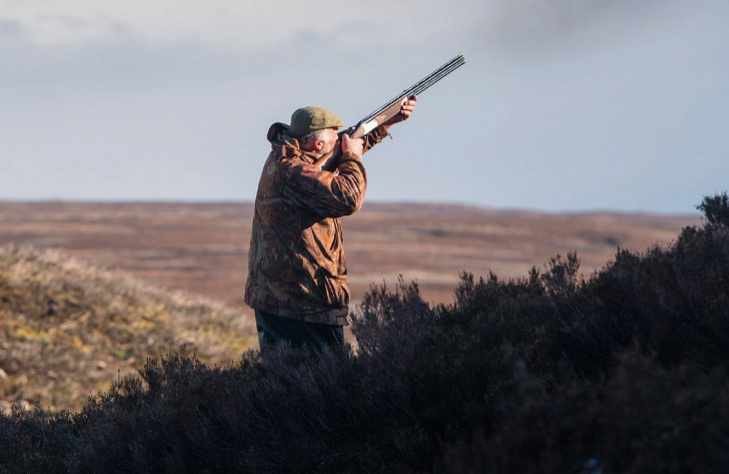
Aim to Sustain, a coalition of landowner and shooting organisations, says: “Any incident of raptor persecution is to be condemned and the game-shooting sector is clear that the weight of the law should be applied to those who indulge in such activity. There was a reduction in the number of incidents in 2021, which should be welcomed.”
The Moorland Association’s director Amanda Anderson says there is “more work to be done”, but the trend of prosecution is down, particularly in the uplands. “It is notable that many of the incidents reported do not occur on land managed for grouse shooting,” she says. Anderson feels the RSPB report does “not reflect satisfactorily the continued growth in the UK’s bird of prey population”.
In response, the RSPB’s Mark Thomas says: “Our figure of 71% relates to cases where we are able to prove a watertight link to game-bird shooting. In many other cases, we believe there is a strong likelihood that it happened in relation to game-bird shooting.”
The curious death of an eagle in Dorset
Claire Dinsdale, a former wildlife-crime officer with Dorset Police and now at the National Wildlife Crime Unit, expressed frustration over the investigation into the death of a white-tailed eagle in Dorset in January 2022. Although blood tests showed the bird had seven times the lethal dose of the rat poison brodifacoum, a Dorset Police investigation concluded there was “insufficient evidence” to prove a wilful poisoning had taken place.
At the time, West Dorset MP Chris Loder said Dorset was not a place for eagles to be introduced and that “police should instead focus resources on targeting county lines drug networks”.
“The eagle case was shut down prematurely in my view,” said Dinsdale on Twitter, “and the planned multi-agency search I had arranged was cancelled. It is clear to anyone with a basic understanding of wildlife crime that Dorset had a problem.”
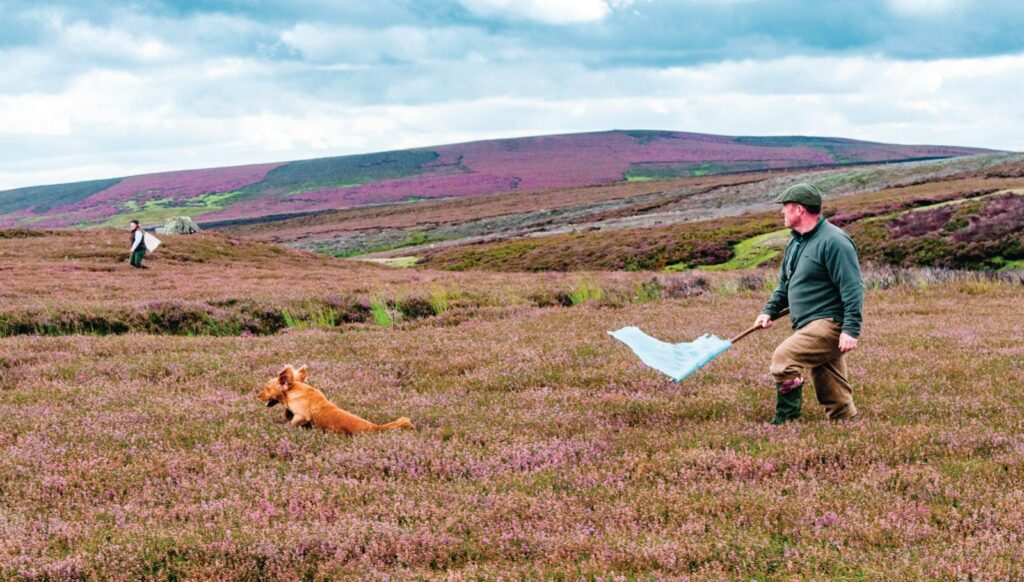
CLAMPING DOWN?
The RSPB report concludes: “It is clear that raptor persecution is deeply rooted and will persist without urgent, meaningful action to clamp down on the individuals and businesses responsible.”
The RSPB has called for the licensing of driven grouse moors. “Self-regulation has largely failed to drive higher environmental standards, leaving no option but to look for additional regulation to deliver the change needed,” says Mark Thomas. “The illegal killing of birds of prey should result in sanctions, including licence revocation for a defined period.”
All parties will monitor the impact in Scotland, where licensing legislation for driven grouse shooting will begin in 2023.
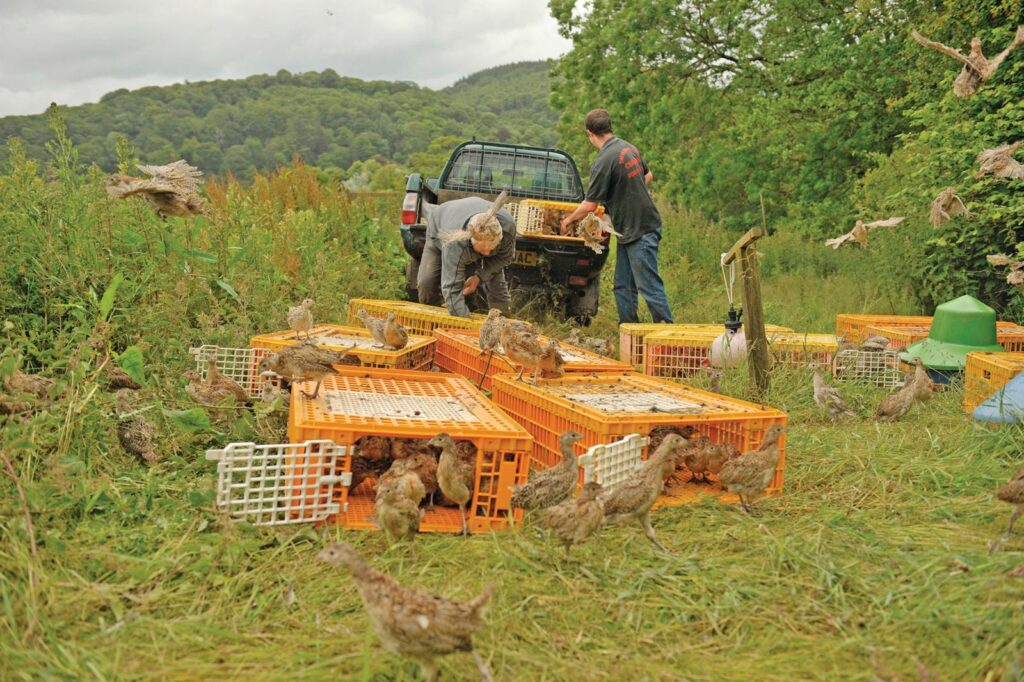
The RSPB has also called for:
• Additional regulation for pheasant and partridge shooting, an activity that annually involves the release of up to 60 million non-native game birds across the UK. • Better sentencing guidelines for magistrates, so that more prison sentences, rather than fines and community service orders, are issued.
• A legal requirement for traps and users to be registered with the police and better enforcement of existing rules.
Have your say? What do you think about the issues raised here? Write to us or email editor@countryfile.com